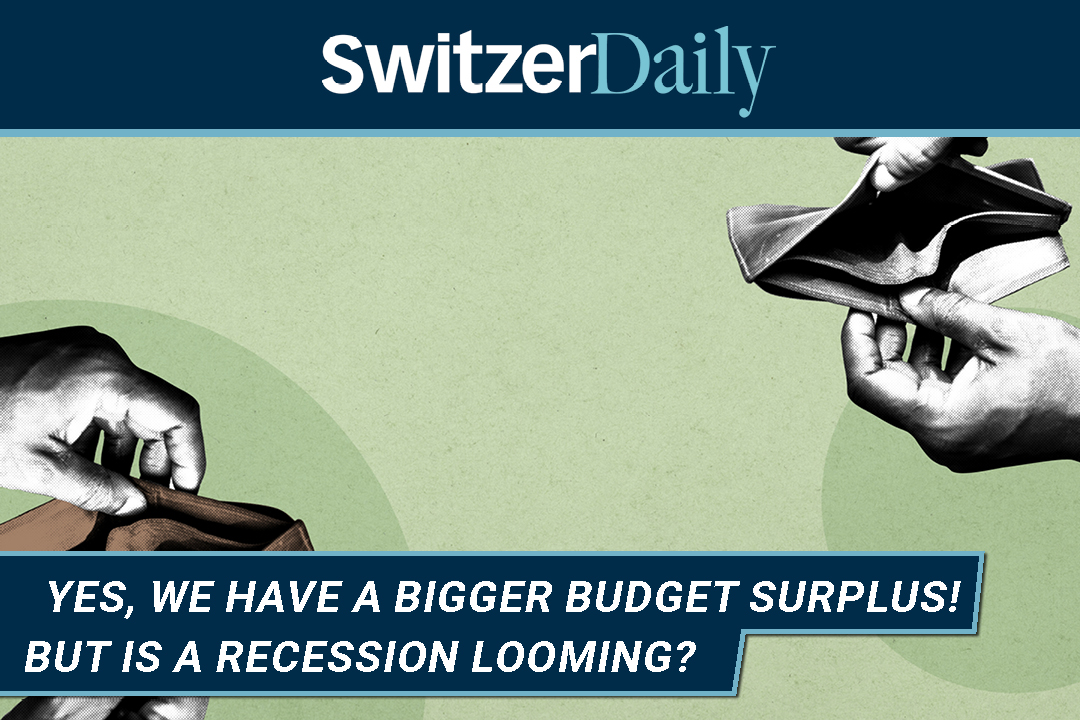

There’s good news and bad news from Treasurer Jim Chalmers and the crew who watch his every move i.e., economists. While the Treasurer tells us we have a nice Budget Surplus, economists think the good news won’t last and there’s a good chance of a recession coming later this year.
That said, economists can be as reliable as weather forecasters. According to the SMH’s Shayne Wright, these economy ‘experts’ think a recession is only a 50:50 proposition.
This budget surplus has come out of a strong jobs market, with unemployment at a low 3.5% and wages on the rise, out of which taxes are collected. And export prices remain strong. All this gave Dr Jim $28.2 billion more in revenue than was expected.
This is all great news. However, if the RBA’s interest rate rises create a recession later in the year, this surplus will only be short term.
The good news will be a message the Treasurer will deliver in Darwin today in a speech to Northern Territory business leaders. But I wonder if he’ll delve into the possible bad news about a recession.
“A better budget position will help us to build a better economy and a better country, one that gives working people the security, stability and prosperity they deserve,” Wright tells us. And the economic news is still pretty good but later this year, things are tipped by economists to be grimmer.
AMP’s chief economist Shane Oliver thinks the Budget’s economic growth forecasts are way too optimistic and his economic model says a recession is a 50:50 chance of happening. This sums up why he’s so negative: “Consumer spending is almost certain to start going backwards later this year as the 4 per cent plus cash rate will push debt servicing costs into record territory as a share of household income. On the RBA’s analysis, 15 per cent of households with a variable rate mortgage (about 1 million people) will be cash flow negative by year end at a 3.75 per cent cash rate and we are now well beyond this.”
He thinks rates will have to be cut by 1% in 2024 to offset the recession that’s already showing up in economic data that is lower on the RBA’s economic concerns list.
This is what Wright found: “The long-running Australian Chamber of Commerce and Industry-Westpac Survey of Industrial Trends is now showing the economy close to stalling. The survey, released on Tuesday, showed broadly flat new orders and employment, a drop in overtime and a slowdown in output growth. Costs and inflation pressures remain high while manufacturers continue to struggle to find workers and materials.”
The RBA itself has been telling us that a mortgage cliff is coming and those who go from a two or three percent home loan to a five or six percent monthly slug will really feel the pinch.
And guess who’ll then be asked to share the pain? Yep, the 9th biggest bank in the country — the bank of mum and dad! The Australian Housing and Urban Research Institute in April have predicted that “…about 40 per cent of Aussies aged 25-34 expect to call on their parents' help to purchase a property” but who knows how many will rely on parents to rescue them from the belt-tightening experience of the mortgage cliff’s higher home loan repayments.
In economics, we talk about the transmission mechanism, which explains how an economic measure like rising interest rates transmits through the country to change spending, confidence, job hiring, investing and so on.
Right now, the RBA’s rate rises have only hurt those on variable rate home loans — as 40% of those with home loans are still on fixed rates. This means when the mortgage cliff really kicks in, the bank of mum and dad could hear a lot of pleading for financial help. The 2023 transmission effect will look like this:
And this could result in a recession!
I’m not sure if a recession is a certainty but if the RBA keeps raising interest rates, it will become increasingly likely. If a recession happens, the Treasurer’s Budget Surplus will disappear quicker than it showed up!